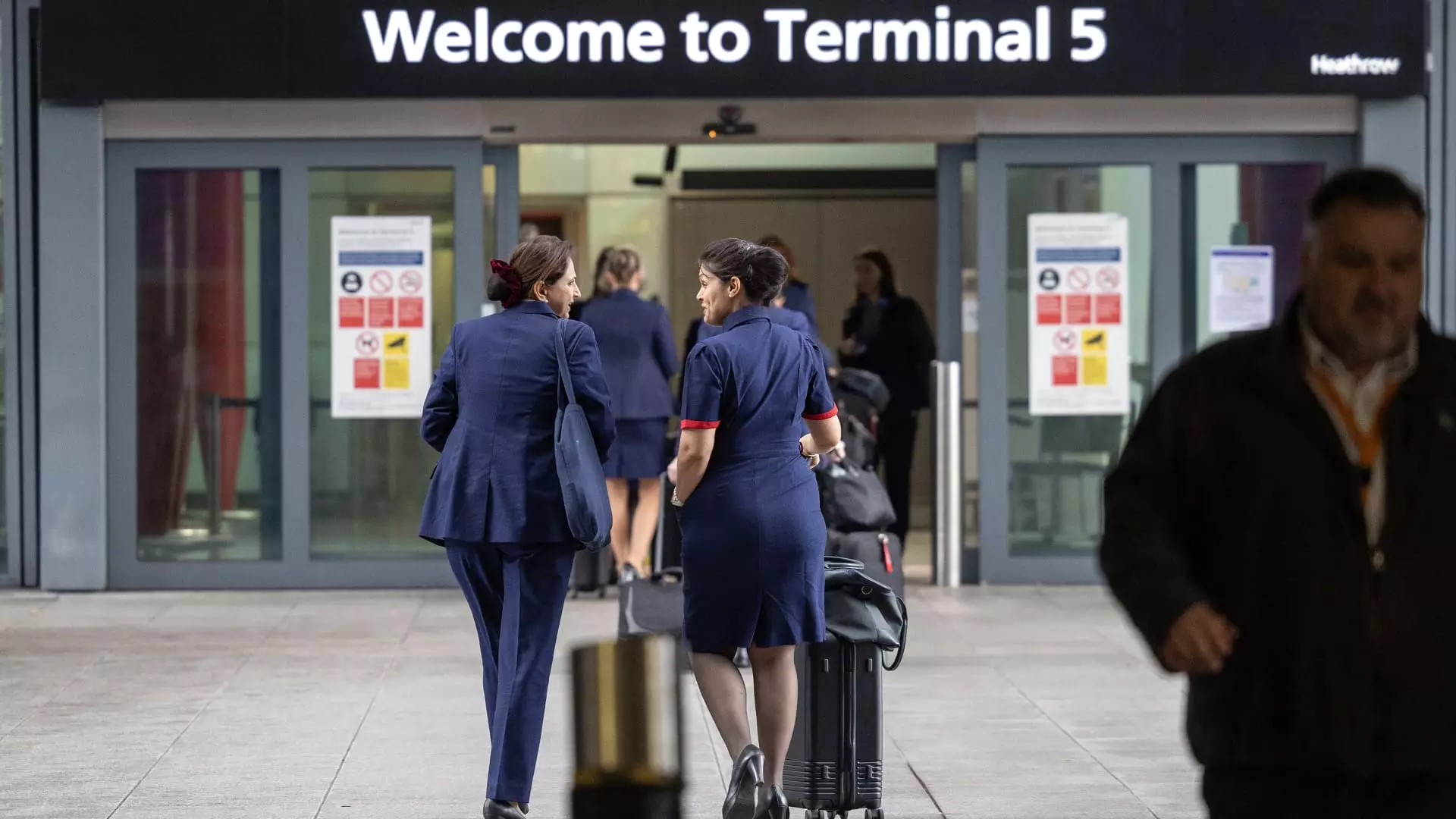This past weekend, the world’s fifth-largest airport, Heathrow, found itself at the crossroads of chaos and frustration. After a fire at an electrical substation precipitated a massive power outage, the airport ground to a halt, leading to the shocking cancellation of over 800 flights. This staggering number illustrates not merely an inconvenience but an insidious crack in our ever-reliant infrastructure. When an entire airport — a crucial hub for global travel and commerce — relies on a single point of failure, it sends up a flare of warning about the inherent vulnerabilities within our modern systems.
With the grounding of flights on Friday, panic quickly swept amongst thousands of travelers left stranded. Those with tightly arranged connections watched their plans unravel as airlines scrambled to restore order amidst the turmoil. Imagine the personal and financial repercussions were families stuck on the other side of the world, or business travelers losing significant deals, all tied to the whim of a flickering power supply.
Power Restoration and Recovery Efforts
By Saturday, Heathrow was back in action, purporting a return to normalcy as flights resumed. Yet the notion of normalcy felt hollow amid the aftermath of such a disorganized collapse. National Grid announced that they had rectified the power supply issues, but can we truly trust that this was simply a hiccup? Or does it signal a systematic flaw that could rear its head again at any moment?
The situation exposes the fragility of the critical infrastructure that supports our daily lives. While the airport officials issued apologies and reassurances, freelancing statistics that hint at operational recovery don’t erase the bitter taste left in the mouths of inconvenienced passengers. Tales of woe spread as airlines, particularly British Airways, openly acknowledged their operational challenges. “85% of our schedule will run as planned,” they announced with a level of bravado that masks the underlying truth: recovery efforts are more tumultuous than a corporate executive admits.
Stakeholder Accountability
As the dust settled, the narrative quickly shifted to blame. Willie Walsh, the former CEO of British Airways, did not hold back in his condemnation of Heathrow’s handling of the crisis. A “total planning failure” he declared, underestimating the potential impact of a single-source power infrastructure. His words resonate as an indictment on how such critical systems can fail and disrupt lives so dramatically, yet nobody seems to take responsibility leading to a broader conversation about infrastructure dependency.
The call for a more equitable redistribution of costs related to passenger care is significant. Why should passengers absorb the brunt of airline cancellation policies? The onus of responsibility cannot fall solely on airlines when gateway structures like airports falter. The balance between airline accountability and infrastructure reliability needs reevaluation. This is not merely a matter of inconvenience; it is a question of fairness and corporate responsibility.
A Wake-Up Call for the Future
As the jubilant travelers returned on Saturday, many inevitably felt a lingering apprehension. Are we constantly teetering on the edge of a significant operational failure that can occur unexpectedly? The answer is not merely technical; it’s philosophical. Our society glorifies progress and modernity, elevating our expectations of rapid and seamless travel. However, each hiccup presents an opportunity to rethink our priorities and the systems we build.
In a climate where investment in infrastructure is often secondary to other political agendas, we must ask ourselves: What will it take for people to recognize that convenience and safety are non-negotiables? The experience at Heathrow should serve as a stark reminder of the consequences of neglecting our infrastructure. A future that embraces resilience, accountability, and comprehensive planning is necessary. The question is, will we heed this wake-up call, or are we destined to repeat these mistakes?


Leave a Reply